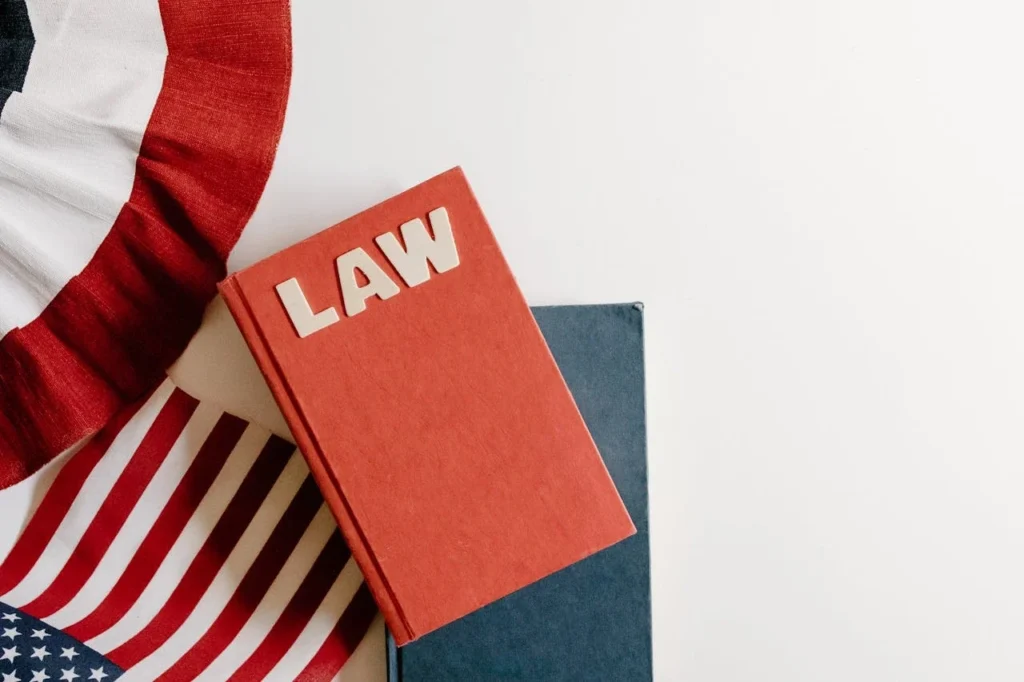As of 2025, Alaska remains the only U.S. state without a standalone, American Bar Association (ABA)-accredited law school. However, several Alaska law school alternatives now exist through hybrid and partner programs that let you study law without leaving the state.
Thanks to these innovative pathways, including the Seattle University School of Law’s Alaska Hybrid Hub and UAF’s 3+3 partnerships, you can earn a Juris Doctor (JD) degree, start your legal career, and still call Alaska home.
Does Alaska Have Its Own Law School?
No, Alaska doesn’t currently have a traditional, brick-and-mortar law school that grants a JD degree.
Because of Alaska’s small population and the high cost of maintaining a full-time faculty, building a law school from scratch has never been feasible.
However, universities across the state have found creative ways to make legal education accessible. From hybrid law degrees to 3+3 fast-track programs, Alaska’s academic landscape is changing fast.
The Seattle University School of Law – UAA Alaska Hybrid Hub

The biggest step forward came when Seattle University School of Law, a fully ABA-accredited law school, partnered with the University of Alaska Anchorage (UAA) to create the Alaska Hybrid Hub.
What Makes It Special
This hybrid JD program allows you to complete most of your studies online while living in Alaska.
Instead of relocating to Seattle for three years, you’ll complete most coursework remotely and attend short, in-person sessions in Anchorage.
Quick Facts:
- Degree: Juris Doctor (JD) from Seattle University School of Law
- Accreditation: ABA-accredited (eligible for any U.S. bar exam)
- Location: Anchorage, Alaska (hybrid model)
- Format: Online classes + occasional in-person residencies
- Who Can Apply: Alaskans, working professionals, and international students living in Alaska
This program is currently the closest thing to a law school in Alaska. You can stay home, save on relocation costs, and still graduate with a degree that qualifies you to sit for the Alaska Bar Exam.
Pre-Law and Legal Studies Programs in Alaska
Even though there’s no JD-granting law school in Alaska, both UAA and UAF offer strong undergraduate programs that prepare you for law school elsewhere.
University of Alaska Anchorage (UAA) – Legal Studies
UAA’s Justice Center runs a B.A. in Legal Studies covering U.S. law, policy, and legal research.
You’ll learn how the legal system works while building analytical and writing skills useful for law school or legal careers.
This program is available to both local and international students and is one of the best options if you plan to move into a hybrid or partner JD program later.
University of Alaska Fairbanks (UAF) – Pre-Law Pathway
UAF offers a Pre-Law Minor and a dedicated advising track through its Political Science department.
The curriculum focuses on constitutional law, judicial processes, and civil rights, giving you a solid foundation before law school.
Fast-Track Law Pathways: The UAF 3+3 Program
If you want to save time and money, UAF’s 3+3 partnership program is a smart move.
You’ll spend three years completing your undergraduate degree at UAF and then transition into law school in your fourth year.
How It Works
- 3 years at UAF (undergraduate)
- 3 years at a partner law school (JD)
- The first year of law school counts toward both degrees
- Total: 6 years instead of the usual 7
Partner Law Schools (2025)
- Gonzaga University School of Law – Spokane, WA
- University of Washington School of Law – Seattle, WA
- Willamette University College of Law – Salem, OR
- University of North Dakota School of Law – Grand Forks, ND
- University of Maine School of Law – Portland, ME
- Mitchell Hamline School of Law – St. Paul, MN
- Seattle University School of Law – Seattle, WA
Some of these schools, such as Willamette, offer guaranteed scholarships (up to $25,000 per year) to qualified UAF students.
Studying Law in Alaska as an International Student

If you’re an international student, you can start your legal studies in Alaska through UAA or UAF.
Admission Requirements
- GPA: Around 3.0 (on a 4.0 scale)
- English Proficiency: IELTS 6.5 / TOEFL iBT 79 / Duolingo 110+
- Visa: Valid F-1 student visa
- Financial Proof: Sufficient funds for tuition and living costs
After completing a pre-law or undergraduate legal program, you can transfer to a partner or hybrid law program (like Seattle U Law’s Alaska Hub).
Your visa record (SEVIS/I-20) will be transferred to the new institution, ensuring a smooth, legitimate process.
Cost of Legal Studies and Living in Alaska
Studying in Alaska is more affordable than in many U.S. states, especially with hybrid models that reduce relocation expenses.
Estimated Annual Costs (Undergraduate Level)
| Category | Estimated Annual Cost (USD) |
| Tuition & Fees | $28,000 – $35,000 |
| Living Expenses | $12,000 – $16,000 |
| Books & Supplies | $1,000 – $1,500 |
| Health Insurance (International Students) | ~$1,800 |
| Total Estimated Annual Cost | $42,000 – $54,000 |
Seattle University Law – Hybrid JD Tuition
Tuition for Seattle University’s JD program is approximately $61,830 per year, but hybrid students living in Alaska save thousands on relocation and housing.
How to Become a Lawyer in Alaska
If you plan to practice law here, these are the steps you’ll take:
- Earn a JD from an ABA-accredited school (like Seattle University School of Law).
- Pass the Alaska Bar Exam, held twice a year in Anchorage.
- Meet Character & Fitness standards set by the Alaska Bar Association.
- Pass the MPRE (ethics exam) with a minimum score of 80.
- Complete Continuing Legal Education (CLE) after admission.
Once you meet all these requirements, you’ll officially become eligible to practice law in Alaska.
Career Opportunities for Law Graduates in Alaska

Alaska has a shortage of practicing attorneys, especially in rural areas, in tribal law, in environmental regulation, and in public defense.
That shortage means plenty of opportunities for new graduates who want to make a difference.
Popular Practice Areas
- Environmental and Natural Resource Law
- Indigenous and Tribal Law
- Energy and Oil Regulation
- Criminal Justice and Public Defense
- Government and Administrative Law
Earning Potential
According to the Alaska Department of Labor & Workforce Development (2024), lawyers in Alaska earn between $90,000 and $150,000 per year, depending on experience and specialization.
Because the state needs more local attorneys, job prospects are strong, especially for those who train and stay in Alaska.
Why Alaska’s Law Education Model Is Evolving
For decades, Alaska’s biggest legal challenge was “brain drain” as local students left for law school and rarely returned.
Now, with hybrid and partnership programs, that’s finally changing.
The goal is simple:
Educate future lawyers in Alaska, keep them in Alaska, and strengthen Alaska’s communities.
These programs also make legal education more inclusive by cutting relocation costs, providing local internships, and connecting students with regional legal issues such as Arctic law and Indigenous rights.
Conclusion
While Alaska remains the only U.S. state without a physical law school, the door to a legal career here has never been more open.
Whether you join UAA’s Legal Studies, UAF’s 3+3 pathway, or the Seattle University Hybrid Hub, you can now study law without leaving Alaska.
For both local and international students, this evolving system offers flexibility, affordability, and a chance to serve one of America’s most unique legal landscapes.
FAQs
1. Does Alaska have a law school?
No, it doesn’t. Alaska still has no standalone law school, but hybrid and partnership programs make legal education accessible.
2. Can I study law while living in Alaska?
Yes. You can join the Seattle University Law Hybrid Hub in Anchorage or enter UAF’s 3+3 partnership programs.
3. Are pre-law programs available in Alaska?
Yes. UAA offers Legal Studies, and UAF provides Pre-Law and Political Science pathways.
4. Can international students study law in Alaska?
Yes. You can enroll in undergraduate pre-law programs and later transfer to a partner JD program.
5. How do I become a lawyer in Alaska?
Earn a JD from an ABA-accredited law school, pass the Alaska Bar Exam, and meet all admission requirements.










